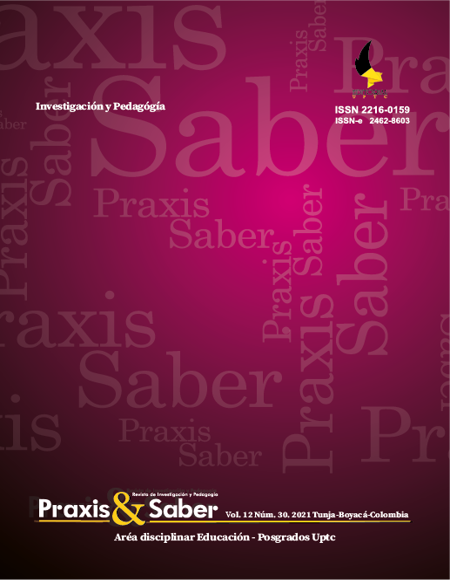Levinas’ ethical perspective: its meaning for education

Abstract
This paper seeks to outline the link between the philosophy of Emmanuel Levinas
and education—παιδεία. By taking a distance from attempts to apply the axiological
and deontological aspects of Levinas’ ethics in education, it is argued that, beyond
instrumentalizing the fundamental categories of the Lithuanian thinker, it is a matter of
understanding the meaning of his philosophy and how this can enrich pedagogical practice.
The work is carried out in six steps: (1) characterization of Levianasian philosophy as a
decentralization of subjectivity and ethical pre-eminence; (2) description of two areas
of human experience—enjoyment and Desire—which define (3) two different types of
education: for nourishment and for responsibility towards the Other; 4) characterization of
today’s world as a world of work, of calculation, of skill and of the relation between means
and ends, in which (5) the areas of emergence of a third party—politics, economics, justice,
education—are intended to degrade ethics to a second level; and (6) the need to place the
face of the Other at the center of the educational act.
Keywords
ethics, education, responsibility, face, Other
References
Aristóteles. (1990). Metafísica. Gredos.
Aristóteles. (1995). Ética nicomáquea / Ética eudemia. Gredos.
Bernasconi, R., Critchley, S., & Peperzak, A. (Eds.). (1996). Emmanuel Lévinas: Basic Philosophical Writings. Indiana University Press.
Brandt, R. (2011). Wozu noch Universitäten. Ein Essay. Meiner.
Critchley, S. (2005). Introducción a Lévinas. En E. Lévinas, Difícil libertad. Ensayos sobre el judaísmo. Lilmod, pp. 11-39.
Descartes, R. (2011a). Meditaciones metafísicas. Seguidas de las objeciones y respuestas. Gredos.
Descartes, R. (2011b). Discurso del método. Gredos.
Heidegger, M. (1960). Serenidad. Eco. Revista de la cultura de occidente, 1(4), 337-352.
Heidegger, M. (1994). La pregunta por la técnica. En Conferencias y artículos. Ediciones del Serbal, pp. 9-37.
Heidegger, M. (2006). Carta sobre el humanismo. Alianza.
Horkheimer, M. (1973). Crítica de la razón instrumental. Sur.
Jäger, W. (2002). Paideia. Los ideales de la cultura griega. FCE.
Jaramillo, D., Jaramillo, L., & Murcia, N. (2018). Acogida y proximidad: Algunos aportes de Emmanuel Lévinas a la Educación. Revista actualidades investigativas en educación, 18(1), 1-16. http://dx.doi.org/10.15517/aie.v18i1.31771
Kant, I. (2012). Fundamentación para una metafísica de las costumbres. Alianza.
Krautz, J. (2010). Die Kompetenz des Homo oeconomicus. Viertelsjahrsschrift für wissenschaftliche Pädagogik, (3), 332-345. https://doi.org/10.30965/25890581-08603005
Krautz, J. (2015). Kompetenzen machen Unmündig. Streitschriften zur Bildung (Heft 1). GEW.
Lévinas, E. (1987a). Totalidad e infinito. Sígueme.
Lévinas, E. (1987b). De otro modo que ser, o más allá de la esencia. Sígueme.
Lévinas, E. (1991). Ética e infinito. Visor.
Lévinas, E. (1993a). El tiempo y el Otro. Paidós.
Lévinas, E. (1993b). Entre nosotros. Ensayos para pensar en otro. Pre-textos.
Lévinas. E. (2000). De la existencia al existente. Arena Libros.
Lévinas, E. (2006a). Ética como filosofía primera. A parte rei. Revista de filosofía, (43), pp. 11-20.
Lévinas, E. (2006b). Los imprevistos de la historia. Sígueme.
Lévinas, E. (2009). Humanismo del otro hombre. Siglo XXI.
Lévinas, E. (2017). La teoría fenomenológica de la intuición. Sígueme.
Mínguez, R. (2010). La escuela hoy en la encrucijada. Hacia otra educación desde la ética de E. Lévinas. Teoría de la educación. Revista interuniversitaria, 22(2), 43-61. http://dx.doi.org/10.14201/ted.8294
Mosès, S. (2004). Más allá de la guerra. Tres estudios sobre Lévinas. Riopiedras.
Rocha, A. (2014). Totalitarismus des Seins? Die Ethik bei Lévinas als Kritik am Heideggers Denken. En I. Römer (Ed.). Affektivität und Ethik bei Kant und in der Phänomenologie. Walter de Gruyter, pp. 241-252.
Romero, E., & Pérez, C. (2012). Aproximación al concepto de responsabilidad en Lévinas: implicaciones educativas. Bordón. Revista de Pedagogía, 64(4), 99-110.